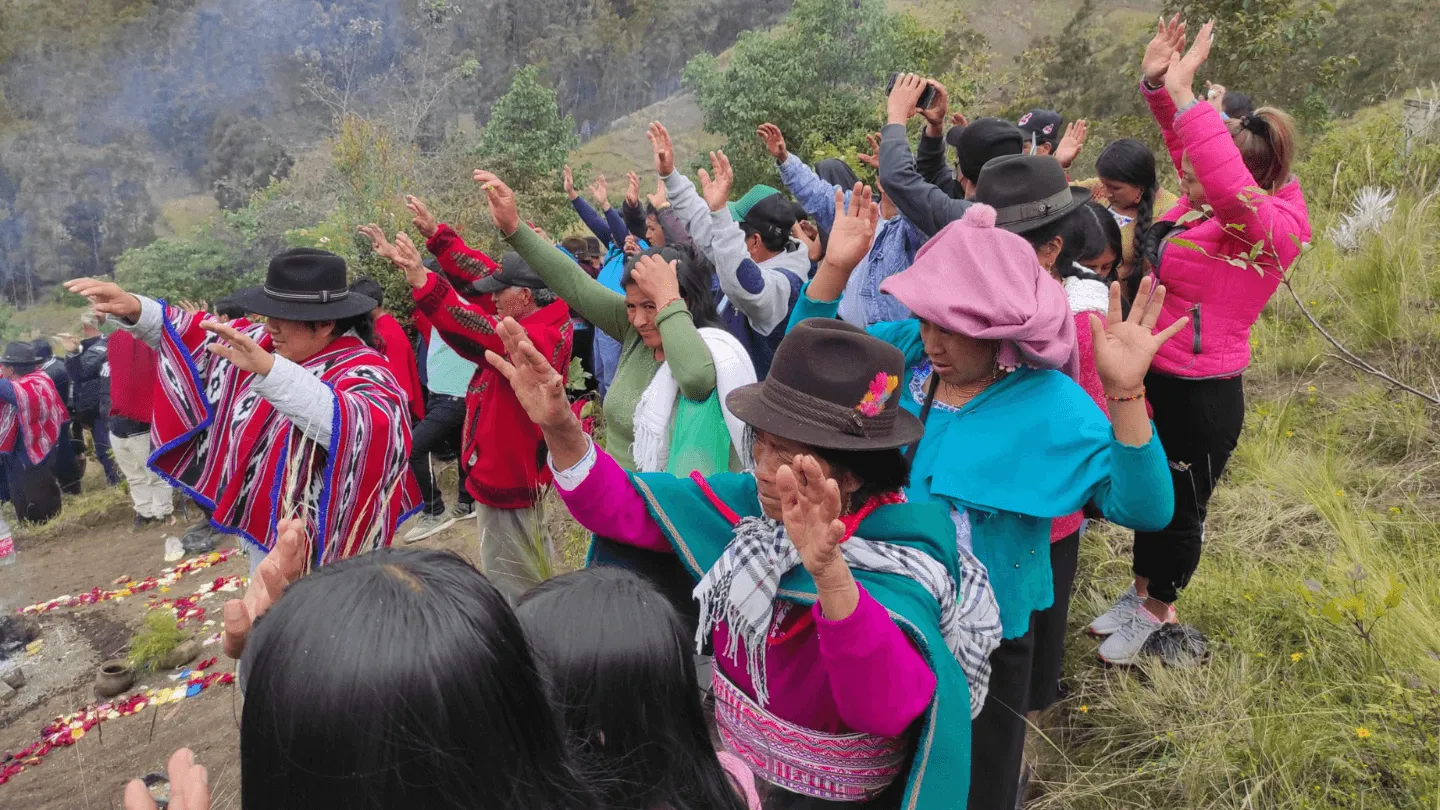“I was lucky to be there,” said photographer and UVM postdoctoral scholar Amaya Carrasco. She captured an intimate celebration of Indigenous people at a potato seed exchange festival in Chimborazo, Ecuador, a province known for the country’s large Indigenous populations. Her photo submission stemmed from her doctoral research, which focused on collective action for ecological transitions in two Indigenous communities: one in Ecuador and one in Bolivia.
“Many indigenous celebrations in Ecuador relate to season changes," said Carrasco. "In this case they were saying thank you to Mother Earth.”
Reflecting on her Ph.D journey, Amaya shared how transformative their experiential learning opportunity was both professionally and personally. “It was very hard, very tough to get the Ph.D; I struggled like all Ph.D students do,” she admitted. “It was an experience that pushed me to grow in my career, but also on a personal level, because it requires a lot of discipline, courage, and tools you have to learn in the process.”
Despite the challenges, Amaya encourages students to explore the world beyond familiar boundaries. “I recommend all students explore places where people don’t speak your language or where there aren’t many commonalities.” She said, “Going to Asia, Africa, or Latin America can expand our understanding of global systems and the differences between the Global South and Global North.”
Leaning into her career pursuits with global systems, Amaya joined the Institute for Agroecology to contribute within the Collaborative Crop Research Program (CCRP), an initiative aimed at advancing agroecological knowledge and practices across Africa and South America. Amaya plans to focus her efforts on the Andean region of South America, with emphasis on her home country of Ecuador.
To learn how you can submit your photo to the experiential learning photo contest, please check out our Experience Photo Contest page.
